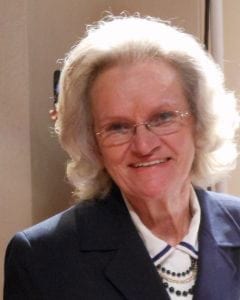Rare Disease family members often hear, “I don’t know how you do it.” This remark usually refers to the physical and emotional aspects of the condition, but those who make that remark might not realize the stress upon the family due to the many ways their financial health is affected.
From expenses to travel to that important appointment (they are all important), to parking fees, to finding somewhere affordable to eat, to uncovered medical supplies and medications, the costs add up over time. There is no doubt that these families could use some support in these areas whenever anyone is in a position to help financially.
Few families have unlimited resources, so it’s not simply a question of having medical insurance coverage for doctor visits, hospitalizations, and medications. Often modifications must be made to living quarters, such as a ramp installed for wheelchair access to the home. When medical equipment is added to the home, changes in the arrangement of furniture is often necessary, so what used to feel comfortable can quickly become crowded. Sometimes a parent might need to hire help or leave the workforce to care for the child or a disabled adult. Even with medical insurance, they also find themselves fighting with insurance companies when the medication ordered by the doctor is only covered for specific conditions, and that rare condition is not on the list.
“But the doctor says this is the best choice for this patient.”
“Sorry, our hands are tied by the law, but you can try an appeal.”
During the final years of my daughter’s life, I learned that those appeals and the requirement for documentation don’t do much more than tie up an enormous amount of one’s time, the doctors time, and the patience of all. After many appeals for the pain medication that worked best for her, with the least side effects, I requested a hearing. It took a long time for that to take place.
The result was that the Administrative Law Judge told us that the medication was as only covered for people dying from cancer because those were the people on whom it was tested and approved. Someone dying from any other condition that causes pain would not be eligible.
The Judge sounded sympathetic, but he said that he knew of no way to get around that law. The most upsetting and annoying aspect of that situation was that the patient actually could have that medication when hospitalized. So, when the side effects from the less helpful medication cause hospitalization, the patient can have that medication, but can’t have it after leaving the hospital. Equally annoying is that the stuff could be purchased “on the street” by someone who doesn’t mind breaking the law.
I’ve heard similar stories from countless others, not only for medications but for necessary surgery, medical equipment, specialized diets, help in the home and such. Many find it difficult to ask for financial help, even though they are not asking for lavish vacation trips. They only hope to be able to put together enough money to keep their heads above water, and perhaps to occasionally attend a conference so they can interact with others, and meet some of the professionals who are working on their particular problems.
One benefit of belonging to a rare disease organization is that these groups raise money for more than research. They try to help with the additional unexpected expenses their families encounter. We in the rare disease community hope that people will bear this in mind when asked to contribute to a rare disease group.
 About the Author: Denise Crompton and her husband Bob, raised four children, the oldest of whom, Kelley, had the rare disease of Mucolipidosis 3. The many years that they spent caring for Kelley prompted Denise to write two books. Kelley’s Journey: Facing a Rare Disease with Courage chronicles their own daughter’s experiences. Diagnosis: Rare Disease includes some of the experiences of 12 more families, and was written to help raise awareness of all that is involved in living with rare conditions. All of Denise’s royalties go toward rare disease research. The Cromptons live in New Hampshire, where they spend their retirement years enjoying their many grandchildren, while still reaching out to help families with rare diseases.
About the Author: Denise Crompton and her husband Bob, raised four children, the oldest of whom, Kelley, had the rare disease of Mucolipidosis 3. The many years that they spent caring for Kelley prompted Denise to write two books. Kelley’s Journey: Facing a Rare Disease with Courage chronicles their own daughter’s experiences. Diagnosis: Rare Disease includes some of the experiences of 12 more families, and was written to help raise awareness of all that is involved in living with rare conditions. All of Denise’s royalties go toward rare disease research. The Cromptons live in New Hampshire, where they spend their retirement years enjoying their many grandchildren, while still reaching out to help families with rare diseases.


